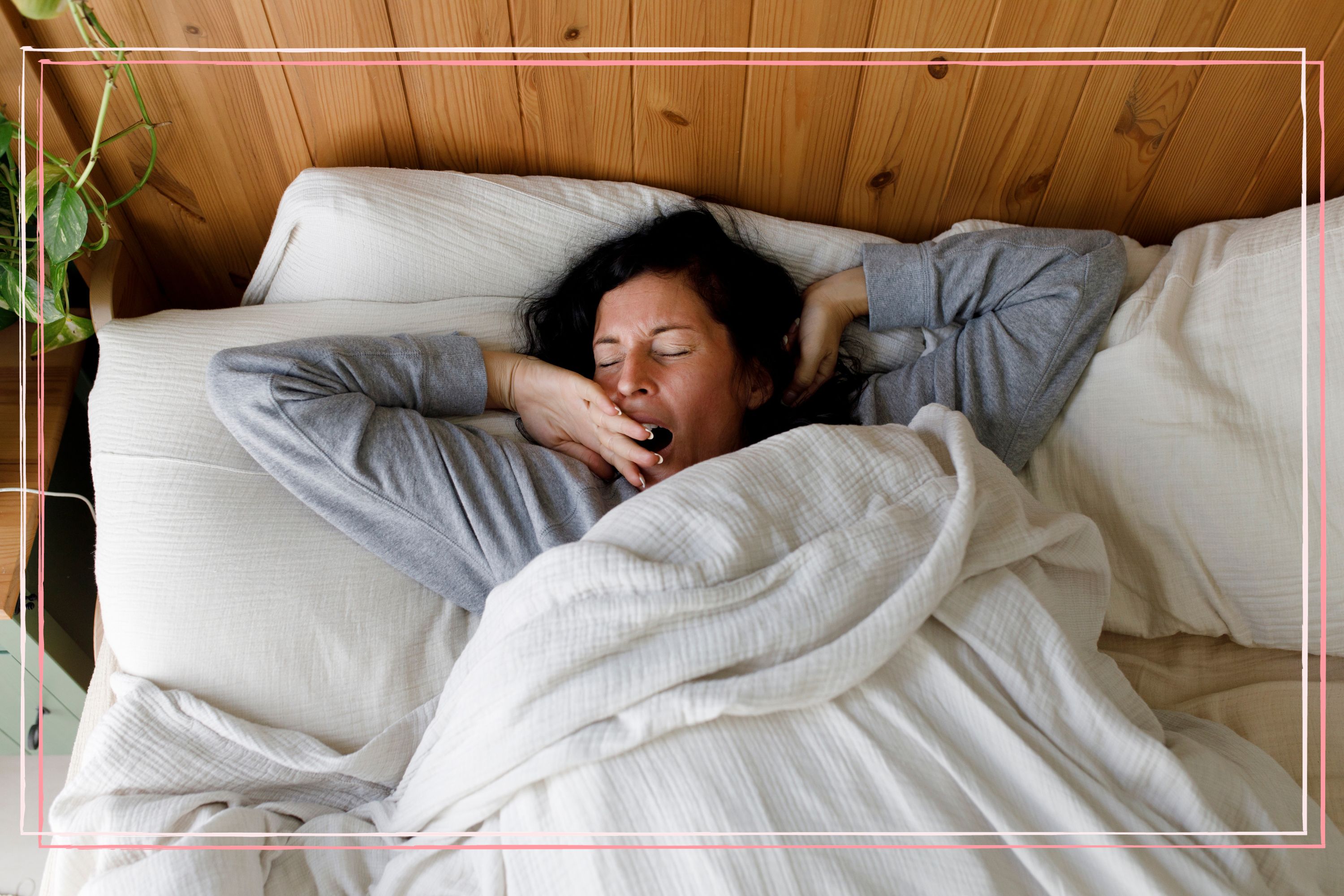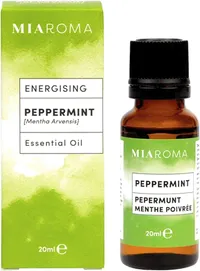How to wake up in the morning: 11 expert-approved tips for sleep-deprived new mums
Getting a good night's sleep is sometimes easier said than done - especially when you're a new parent


Parenting advice, hot topics, best buys and family finance tips delivered straight to your inbox.
You are now subscribed
Your newsletter sign-up was successful
If you're a new parent, chances are you're feeling sapped of energy and wondering how to wake up in the morning. We've asked the experts for the best tips to help you feel fresh, even when you're baby has kept you up all night.
For some of us, getting out of bed in the morning is a daily battle - and none more so than the new parents among us. Cluster feeding rarely equals eight hours of sleep every night, so if you keep waking up early thanks to your baby then know you're not alone. Unfortunately, that doesn't make recovering from a bad night's sleep any easier, but if you're searching for ways to feel as fresh as you can and look less tired despite night upon night of broken sleep, then we're here to help.
"What you do when you first get out of bed sets the tone of the day," explains Dr. Tiago Reis Marques, CEO of Pasithea Therapeutics. "For some, this may include a strict routine, while for others, it may vary from day to day. But whether you are already in a routine, or you are looking for a new approach to starting your day, there are a few common things to consider in the morning so that you are left feeling as you mean to go on: healthy and mentally strong."
How to wake up: Tips for new mums to help make the morning better
1. Take a shower
We get it, you're in the newborn phase and you barely know what day it is, let alone when was the last time you showered. But taking some time for a steamy rinse will help to flush away any signs of snooziness, and science seems to agree.
One German study published in Frontiers in Human Neuroscience found that a hot shower not only wakes you up, but it also gets your creative juices flowing too. In contrast (and if you can handle it), a cold shower forces you to take deeper breaths, decreasing your body’s CO2 levels, which in turn helps you to concentrate.
If you can handle a daring douche, we recommend the 90-second shower trick:
- Turn your shower temperature down as cold as you think you can bear for 30 seconds, showering as normal. Cold water (and the shock of it!) increases our body's oxygen intake.
- Turn your shower temperature up to as hot as you can handle, showering in this for another 30 seconds. Hot water dilates blood vessels and increases circulation.
- Lastly, turn the temperature down to cold once again, showering in it for the final 30 seconds.
2. Pep up with peppermint
You might think of peppermint tea as a bedtime drink, but research has shown that this plant is perfect for perking you up. One University of Cincinnati study found that students who inhaled peppermint before a test experienced increased focus and better test results.
Parenting advice, hot topics, best buys and family finance tips delivered straight to your inbox.
Another experiment in 2006 also presented a peppermint odour to lorry drivers and the results speak for themselves, with the peppermint scent leading to increased ratings of alertness, decreased temporal demand, and decreased frustration over the course of the driving scenario. In addition, the peppermint scent reduced anxiety and fatigue.
Invest in a vial of peppermint oil and dab it on some cotton wool to inhale, or leave it in places around your home to keep yourself feeling alert. You could also invest in an electric aromatherapy diffuser to mist your bedroom with the refreshing scent each morning.
Miaroma Peppermint Pure Essential Oil - £6 | Holland & Barrett
This pure essential oil has a fresh, energising and cooling aroma, and promises to leave you with a sharper, concentrated and clearer mind. Next time your baby keeps you up all night, try misting it around your bedroom to bring an iota of clarity to your bleary morning.
3. Breathe out
“It may seem simple, but taking a few minutes out of your morning to pause and breathe is certainly beneficial to your mental health,” explains Dr Tiago Reis Marques. “Deep breathing is one of the most effective techniques to reduce stress in the body. This can slow the heartbeat and stabilise blood pressure.”
It also sends a message to both your brain and body to slow down, he adds, relieving any tension or stress felt in the morning.
When your energy is low, take a deep breath in and then breathe out for longer than you normally would - it's a tried and tested simple fix to make you feel more alert.
4. Listen to music
“Listening to music can help you feel connected and positively impact your mood,” Dr Kat Lederle tells us, Head of Sleep Health at Somnia.
Indeed, one 2020 Australian study found that certain alarm noises can help reduce morning grogginess. Melodic tunes led to a surge in energy in participants trialled, leaving them more alert for the day ahead. Unsurprisingly, this was favoured over the annoying beeping alarm sound which instead ‘confused brain activity’.
The best bit? Scientists in the study shared their top two songs that promised a feel-good morning: 'Good Vibrations' by The Beach Boys and 'Close to Me' by The Cure. But of course, any song that gets those hips shaking is sure to do the trick too.
5. Drink water
Feeling tired is a classic symptom of dehydration, and given that being a new parent means you barely have enough time to sit down with a glass of water, chances are that not getting enough H2O is contributing to that groggy feeling in the morning.
A 2012 study in the Journal of Nutrition looked into mild dehydration and found that women suffered from low mood, headaches, poor concentration and difficulties performing tasks as a result.
Ensuring you drink plenty of water in the morning will help combat this and set you up for the working day. But how much water should you drink a day? The NHS EatWell Guide recommends six to eight glasses full.
Stanley Quencher Flowstate Tumbler - £44.99 | John Lewis
If anything's going to encourage you to keep hydrated, it's this 1.2L travel cup that everyone's talking about right now. Stanley have taken the world by storm with their Quenchers, which fit in a car’s cup holder despite their huge volume, have a straw for easy drinking and a handle too. They come in a huge range of colours, but you'll have to be quick if you find the one you want in stock - these coveted tumblers are known for selling out quickly.
6. Cleanse, tone and moisturise
Taking the time to give some TLC to your skin will not only give you a healthy glow - it can help wake you up for the day too. Get the circulation going by really massaging the products in to stimulate blood flow and bring a bit of colour to your complexion.
You could try keeping your moisturiser in the fridge so it'll be cool and refreshing on your skin in the morning, which may also aid alertness. Meanwhile, investing in one of the best eye creams that'll perk up your peepers and help get rid of dark circles will help too.
Cult beauty brand The Ordinary have a Caffeine eye serum that is highly rated by online reviewers.
The Ordinary Caffeine Solution 5% + EGCG - £8.40 | LOOKFANTASTIC
Counteract dark circles and puffiness with the 5% Caffeine Solution + EGCG from The Ordinary. Delivering a highly concentrated dosage of Caffeine and Epigallocatechin Gallatyl Glucoside (EGCG) derived from Green Tea Leaves, the lightweight serum rapidly absorbs into the delicate eye contour to help reduce the appearance of discolouration and alleviate symptoms of fatigue and stress.
7. Don't skip breakfast
We’ve all heard that breakfast is the most important meal of the day, and it's even more important to consume foods that give energy in the morning when you're a new parent. We get their you're probably run off your feet tending to your baby's needs, but looking after yourself is important too.
“Make sure you don’t skip breakfast, even if it’s just half a banana first thing,” advises Dr Lindsay Browning, psychologist, neuroscientist and sleep expert at And So To Bed. “When you eat during the day it helps to anchor your circadian rhythm. So, if you skip breakfast, your body does not know that it’s actually morning and this can cause you to feel more sluggish at the start of the day.”
Indeed a group of teenagers in one 2008 Australian study reported improved mental health when they stopped skipping breakfast and enjoyed a bowl of cereal instead.
Fruit is also great first thing and sets you up with important nutrients and vitamins for the day. Or, look for wholegrains if you're a toast lover - these high-fibre carbs will give you energy that lasts for hours.
8. Avoid sweet alternatives
A sugar hit can be tempting in the morning when you're feeling sluggish, but it's not the wisest choice as sugar subdues the neurons in our brains that help control our wakefulness and how alert we feel.
Avoid ordering a morning coffee that’s high in sugar (goodbye vanilla lattes), and ditch sweet pastries or less healthy cereals like Crunchy Nut Cornflakes or Rice Krispies - these are both very high in sugar.
A high protein breakfast is what the scientists suggest - with researchers from one University of Cambridge study finding that protein promotes wakefulness and helps to kickstart bodily activity.
9. Let the light in
If you're looking for a quick and easy way to help you feel more awake then this is it, as Dr Jeff Foster says getting some light is the best way to feel alert in the mornings. “Natural light stimulates the wakefulness centre in the brain which helps you get up naturally,” he tells us.
And there's plenty of evidence to support this, with a study published in Scientific Reports finding that morning exposure to blue-enriched white light significantly improved the participants' perception of alertness. It also positively affected mood and visual comfort.
Meanwhile, a different study published in the Sleep Health journal found that those who got their rays in the morning sleep better at night and feel less stressed and depressed than people who didn’t.
Dr Jeff recommends using a wake up light to help getting out of bed in the morning feel easier. A good example is Lumie's Bodyclock, which emits a natural glow that gradually gets brighter throughout your last half an hour of sleep. This means that by the time your alarm time hits, you've had the chance to wake up naturally without being suddenly snatched out of your REM cycle.
Lumie Bodyclock Spark 100 - RRP £99 | Amazon
The gradually brightening light of the Lumie Bodyclock naturally brings you round from sleep, prompting your body to reduce the production of sleep hormones such as melatonin, while increasing the levels of hormones like cortisol that help you get up and go.
10. Stretch it out
Incorporating a morning stretch or two into your wake up routine will do wonders for both your body and brain.
As one University of Washington study explains, our muscles also go to sleep when we do, with our bodies quite literally becoming paralysed during the REM stage of sleep. Some gentle stretches in the morning will therefore help you get moving again thanks to those trusty energy-releasing endorphins.
“If you spend 10 minutes mobilising your body first thing, you’ll reap the rewards throughout the day,” says Chatty Dobson, Yoga Teacher & Owner of FLEX Chelsea. "Not only will you feel less stiff, but you’ll also get your blood pumping through your brain, so mentally you’ll benefit too.”
Her go-to moves are cat cow, twists and “several rounds of sun salutations to work the whole body”.
Internet yogi Adrienne has a special 11-minute ‘Wake Up Yoga’ video that fits the bill too.
11. Get out for a walk
Getting out the house for fresh air, exercise and a sunlight hit is a sure fire way to blow away those morning cobwebs.
One study by the University of Rochester concluded that spending time in the great outdoors “makes people feel more alive”, with the same research finding that adults who walked outside for 20 minutes had more energy than those who walked the same indoors.
The reason for this? Dopamine, endorphins and other chemicals in the brain kick into gear if you go for a stroll in the sun - signalling to the body that it's time to be up and about. And the effect can last up to five hours.
Even just a short walk around your neighbourhood will help - tuck your baby in one of the best prams and make it a family excursion.
We spoke to the following experts:

Dr. Tiago Reis Marques is a senior clinical fellow at Imperial College London and a lecturer at the IoPPN, King’s College London. His research focuses on topics including the mechanism of action of psychiatric medication and novel treatment targets. During his career, he has obtained multiple awards for his research. Dr. Marques is an author or co-author of more than 100 scientific publications in peer-reviewed journals in psychiatry and neuroscience, has co-authored international treatment guidelines and written book chapters, including in the leading book in the field, Neurobiology of Mental Illness.

Dr Lindsay has a doctorate from the University of Oxford, where she investigated the relationship between worry and insomnia, and is passionate about helping people of all ages to sleep well. A Chartered Psychologist and Associate Fellow of the British Psychological Society, Lindsay is also a member of the British Sleep Society, and has published several publications about sleep and game theory.

Dr Kat Lederle has a PhD in Human Circadian Physiology & Behaviour, an MSc in Biosciences and is the author of Sleep Sense: Improve your sleep, improve your health. She believes in a mind-body (holistic), non-drug approach to insomnia and sleep problems, as well as science and evidence-based approaches. In her work, she combines proven sleep science with mindfulness and acceptance- and compassion-based therapies to improve the quality of sleep.
You might also want to know how much deep sleep you need and how to get more of it as a new parent, or check out these easy ways to fall asleep fast, to help you get some more rest next time you're awoken by your baby in the night. We've also taken a look at how much sleep teenagers need too.

Ellie is GoodtoKnow’s Family News Editor and covers all the latest trends in the parenting world - from relationship advice and baby names to wellbeing and self-care ideas for busy mums. Ellie is also an NCTJ-qualified journalist and has a distinction in MA Magazine Journalism from Nottingham Trent University and a first-class degree in Journalism from Cardiff University. Previously, Ellie has worked with BBC Good Food, The Big Issue, and the Nottingham Post, as well as freelancing as an arts and entertainment writer alongside her studies. When she’s not got her nose in a book, you’ll probably find Ellie jogging around her local park, indulging in an insta-worthy restaurant, or watching Netflix’s newest true crime documentary.



